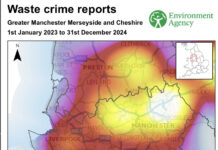A new government study to track coronavirus (COVID-19) in the general population has been launched.
The study will contact 20,000 households across England help to understand levels of immunity and hopes to reach up to 300,000 people in the next 12 months.
Participants in the study will form a representative sample of the entire UK population by age and geography. The results will help scientists and the government in the ongoing response to the coronavirus outbreak, with initial findings expected to be available in early May.
Participants will provide samples taken from self-administered nose and throat swabs and answer a few short questions during a home visit by a trained health worker. The swab tests will show whether or not participants currently have the virus. They will be asked to take further tests every week for the first 5 weeks, then every month for 12 months.
In total, 25,000 people will take part in the pilot phase of the survey, with plans to extend it to up to around 300,000 over the next 12 months.
Adults from around 1,000 households will also provide a blood sample taken by a trained nurse, phlebotomist or healthcare assistant. These tests will help determine what proportion of the population has developed antibodies to COVID-19. Participants will be asked to give further samples monthly for the next 12 months.
Swabs will be taken from all participating households, whether their members are reporting symptoms or not. Blood will not be taken in any households where someone has symptoms of COVID-19 or is currently self-isolating or shielding.
The trained study health workers will use all the recommended precautions to protect themselves and everyone in the household from getting the virus. Swab test results will be communicated back to participants by their GPs and confidentiality will be protected throughout the process.
Led by the Department for Health and Social Care and the Office for National Statistics, the study draws on the world-leading scientific expertise of the University of Oxford, and is backed by the testing capabilities of data science company IQVIA UK and the National Biosample Centre in Milton Keynes.
The study will add to the population data already being collected through the national surveillance programme operated by Public Health England, which has been enhanced since the end of February.
Health Secretary Matt Hancock said, ‘These results will help us better understand the spread of the virus to date, predict the future trajectory and inform future action we take, including crucially the development of ground-breaking new tests and treatments.’







